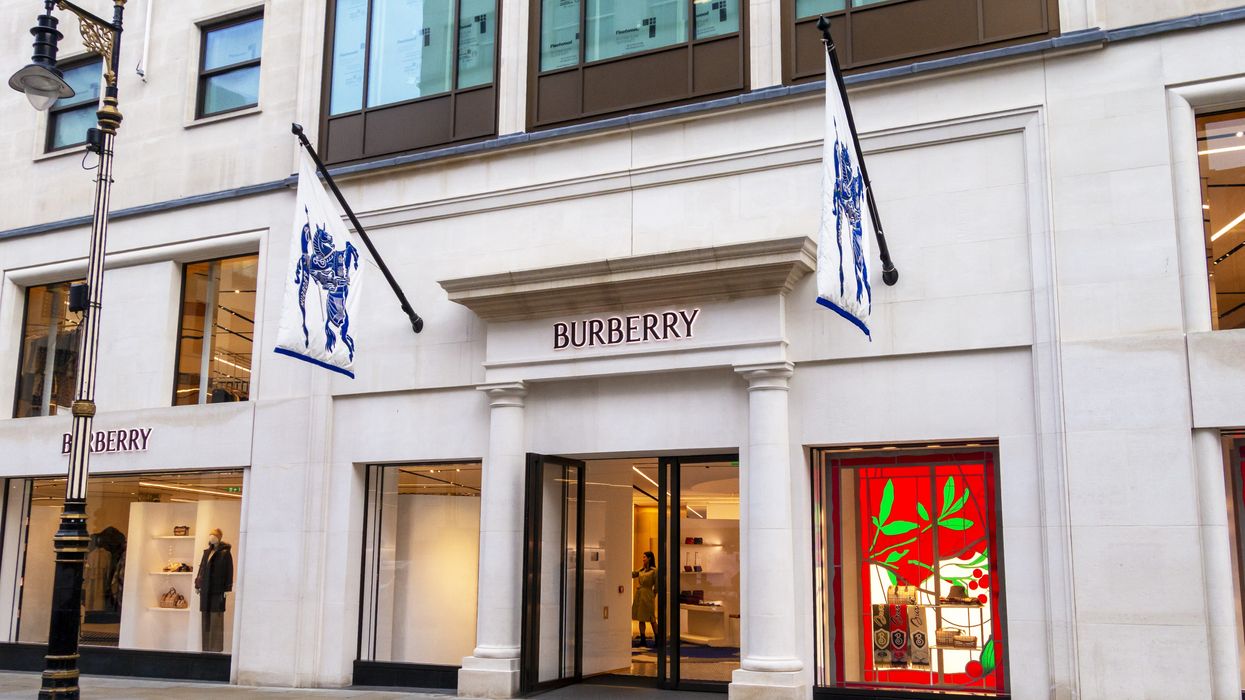Luxury fashion brand Burberry has announced plans to cut around 1,700 jobs globally—equivalent to nearly one-fifth of its workforce—as part of a major cost-saving initiative aimed at improving profitability and streamlining operations.
The job reductions will take place over the next two years, with the majority of the affected roles based in offices around the world. Burberry’s UK headquarters is expected to see the greatest impact due to its larger number of employees. Some retail staff will also be affected, with changes to shift patterns being introduced to better align staffing levels with periods of peak consumer demand.
As part of the restructuring, Burberry will also eliminate the night shift at its Castleford factory in West Yorkshire, which specialises in manufacturing the brand’s iconic trench coats. The move is expected to result in the loss of around 150 jobs—roughly 25 per cent of the workforce at that facility. Trench coats produced at the site typically retail for between £1,000 and £10,000.
Chief executive Joshua Schulman said the decision followed a long-standing issue of overcapacity at the Castleford site. “For a long time we have had overcapacity at that facility, and that is simply not sustainable,” he said. However, Schulman insisted that the changes were being made to preserve the company’s UK manufacturing base.
“I want to be very clear that we are making this change to safeguard our UK manufacturing, and in fact we will be making a significant investment to renovate this factory in the second half,” he added. “Our intention is that we make our British heritage raincoats in the UK for many generations to come.”

Burberry, which employed approximately 9,170 people globally last year, said the workforce reduction represents around 18.5 per cent of its total employees. The cuts come in the wake of the company’s £40 million cost-cutting programme announced in November, following a slump that led to a full-year pre-tax loss.
On Wednesday, Burberry announced its intention to generate an additional £60 million in savings by the end of the 2027 financial year, bringing the overall target to £100 million. A portion of these savings will come from reducing “people-related costs,” especially in the UK, where teams including design and creative staff are based.
The company’s financial performance has been adversely affected by a decline in global demand for luxury goods, particularly in Asia. In addition, concerns have grown over the impact of higher tariffs in the United States, one of Burberry’s key markets.
For the financial year ending 29 March, Burberry reported a pre-tax loss of £66 million, a sharp contrast to the £383 million profit it posted the previous year. Comparable retail sales dropped by 12 per cent year-on-year, with a 16 per cent decline in Asia significantly contributing to the overall downturn.
Despite the losses, Burberry noted that trading improved in the second half of the financial year compared to the first, a sign the company believes indicates its long-term strategy is beginning to take effect.
Burberry’s outerwear segment—featuring staple products such as trench coats and scarves—continued to perform better than other categories, including leather goods and accessories. The brand has pledged to ramp up its marketing efforts to support core product lines. Recent campaigns have included well-known actors such as Olivia Colman and Barry Keoghan in a bid to reinvigorate consumer interest.

Investor sentiment appeared to rally following the announcement of the cost-saving plans. Shares in Burberry rose nearly 10 per cent on Wednesday, with investors optimistic that the restructuring will help the company return to profitability.
Susannah Streeter, head of money and markets at Hargreaves Lansdown, said the brand was facing tough conditions in the mid-range luxury segment. “Burberry is dealing with difficult conditions in the mid-market luxury sector. It doesn’t have the same pull of its ultra-luxe rivals, and aspirational shoppers are more cautious without the deep pockets of wealth to keep them insulated,” she said.
Streeter also noted that although some of the more severe US tariffs have been eased, a broader recovery in China’s consumer confidence—a key market for luxury brands—will take time. “Consumer confidence in China, which has been the powerhouse for luxury brands, will take time to be restored, which could also slow down Burberry’s progress,” she added.
With its workforce restructuring, targeted marketing, and strategic investment in UK manufacturing, Burberry is hoping to stabilise its operations and better position itself amid a challenging global economic landscape.





